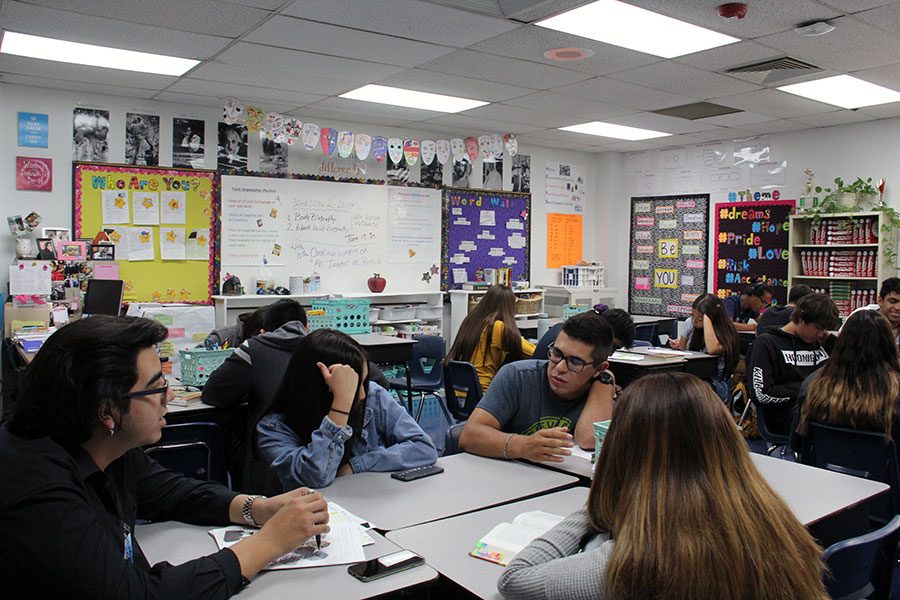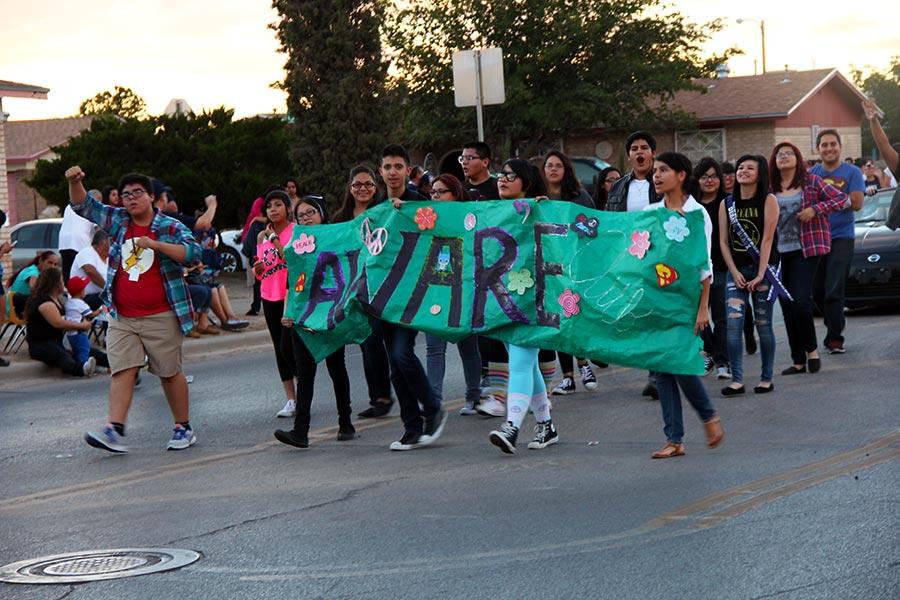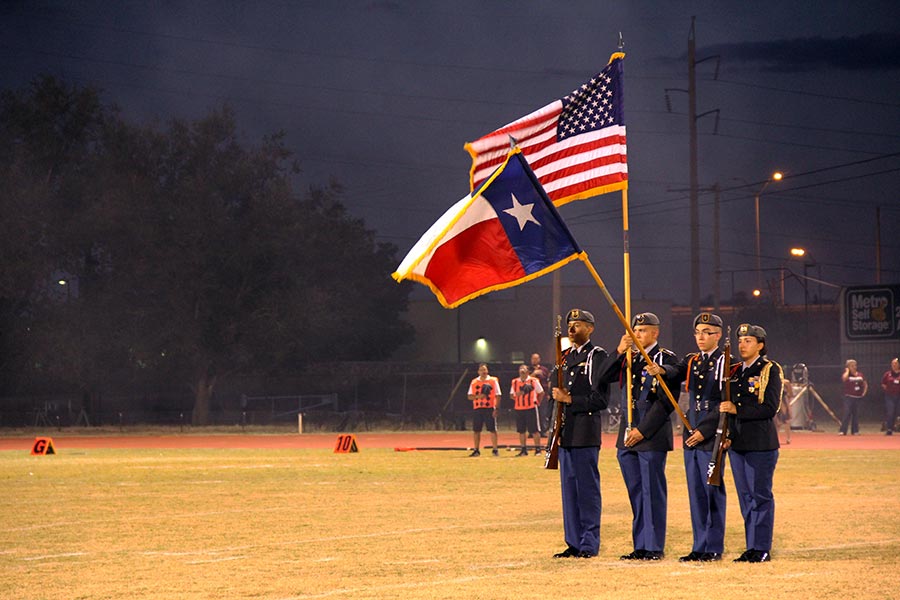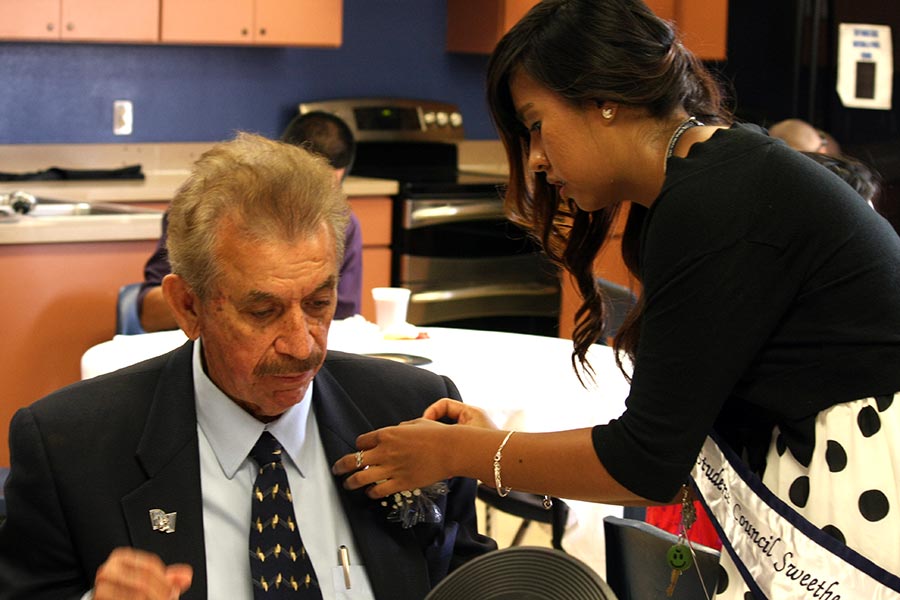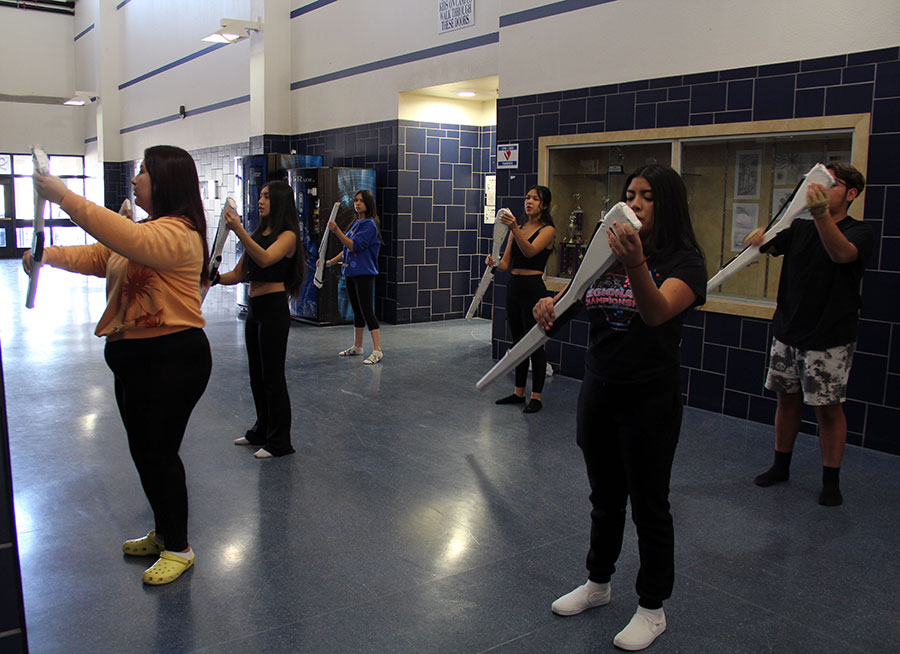Procrastination? Not in this class!
Juniors Danielle Garcia, Nicole Gongora, Ramon Urueta and Christian Valencia discuss the class reading assignment in AP teacher Andrea Morse’s English III, Oct. 2.
October 10, 2019
After a long summer break, junior Marcos Portillo is preparing for a fresh start. He is ready for what lies ahead as he continues to work and challenge himself with more AP classes.
“This year is the most difficult, last year I only took one AP class for World History and this year I am taking everything either dual credit or AP. I have a lot on my plate,” Portillo said. “Because I knew it was going to make me work hard and look good to colleges since I want to go to UT Austin.”
With any class putting work off is tough to overcome. Students know they need to get their work done; but when the worry of a deadline kicks in students may lose their focus.
“The hardest is procrastination, I usually take my Saturdays off and use Sundays for homework which is bad, don’t do that,” junior Eduardo Flores said. “Procrastinating affects me in so many ways and it limits the effort I put in an assignment.”
It is a student’s responsibility to complete homework at their own pace. But homework comes with deadlines and it’s important to meet the deadlines.
“Depending on the class and the day, history homework takes about six hours because we have to summarize each paragraph from a textbook. On average it takes about one to two hours daily,” Portillo said.
Teachers assign homework to help students practice what was explained in class. Essays and reading comprehension assignments help students improve their writing skills.
“It depends what course it is. My English 1301 has five different genres of essays that have to be completed within the semester. My English 2323 requires completing an assignment that demonstrates understanding and comprehension of the time periods that we have for the class,” English III Dual Credit teacher Adriana Nieto said.
Although dual credit and AP classes are tough they’re challenging, useful and can earn a student college hours.
“One of the most important reasons to join a dual credit class is it gives them a taste of college, it prepares them and they get to see that it is a struggle to manage time and get the work done,” Nieto said. “At the end of the semester if the student has done everything possible to be successful then not only do they walk out with passing the class but they also get college credit that can be transferred in Texas.”
Students have some survival tips for incoming AP and dual credit students.
“Keep up with the work, do not procrastinate and pay attention to the lectures because they are important,” Portillo said.
Dealing with procrastination and maintaining attention seem to be key when being in an AP and dual credit class.
“Don’t procrastinate, do your work, and actually stay on task and pay attention to your teachers because they know what they are doing,” Flores said.

